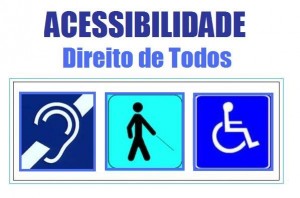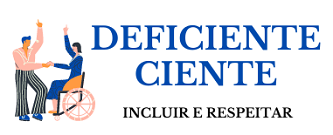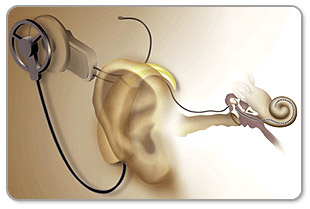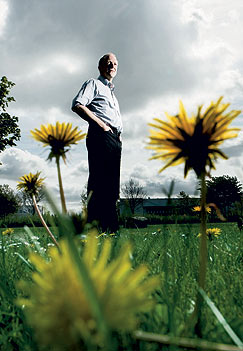Acessibilidade para deficientes visuais e auditivos agora é lei nos EUA
 Caro leitor,
Caro leitor,
A matéria abaixo foi extraída do Blog da Audiodescrição.
Foi aprovada no EUA importante lei de acessibilidade. Enquanto no Brasil temos 2 horas por semana de audiodescrição, nos EUA, em 2012, as Tvs terão 4 horas destinadas a esse serviço. (Nota do blog).
O presidente americano Barack Obama assinou no último mês de outubro um projeto de lei que determina que empresas garantam a pessoas com deficiência visual e auditiva acesso a diversas tecnologias.
Esta legislação, exige acessibilidade aos programas de televisão, telefones inteligentes, a Internet, menus em DVD players, guias de programação na TV a cabo, e outros.
Para Paul Schroeder, vice-presidente de programas e políticas da American Foundation for the Blind (AFB), a iniciativa possibilitará que milhões de pessoas com deficiência tirem partido das novas tecnologias.
“Esta lei baseia-se no espírito do Americans with Disabilities Act e garante que pessoas com deficiência participem plenamente no século 21″, disse Carl R. Augusto, presidente da AFB.
Com forte atuação de movimentos representativos de pessoas com deficiência dos Estados Unidos, para além do envolvimento de um grande número de competentes juristas e experts em tecnologias assistivas, a demanda de acessibilidade ganhou força no congresso americano conseguindo arregimentar um importante e atuante grupo bipartidário que trabalhou para a aprovação da lei.
Abaixo, matéria original:
President Obama Signs Historic Technology Access Bill
New Law Makes Technology More Usable for Americans with Vision Loss and other Disabilities
Washington, DC (Friday, October 8, 2010)—Today, joined by disability-rights advocates and tech industry representatives, President Obama signed into law the 21st Century Communications and Video Accessibility Act. The legislation requires smart phones, television programs and other modern communications technologies to be accessible to people with vision or hearing loss.
“This law is life-changing for the millions of us with disabilities who are too often unable to take advantage of new technologies,” said Paul Schroeder, Vice President of Programs & Policy at the American Foundation for the Blind (AFB). “It opens the door to the digital age, and gives Americans with visual or hearing impairments equal access to smart phones, emergency broadcast information, the menus and controls on televisions and cable TV guides, and much more.”.
Signed into law during National Disability Employment Awareness Month, this legislation is expected to create more opportunities in the work place, the classroom, and everyday life. “It will help Americans with disabilities work more productively, respond to emergencies more effectively, and participate even more in society and culture,” said Mark Richert, Director of Public Policy at AFB and a principal negotiator with the communications and TV industries.
“This law builds on the spirit of the Americans with Disabilities Act and ensures people with disabilities can fully participate in the 21st century,” said Carl R. Augusto, AFB’s President & CEO. “We applaud the many advocates and lawmakers who fought tirelessly to make this law a reality.”.
The legislation gives individuals with vision or hearing loss improved access to television programming, smart phones, the Internet, menus on DVD players, program guides on cable TV, and more. Specifically, it:
- Mandates mobile phone companies to make web browsers, text messaging, and e-mail on smart phones fully accessible.
- Restores and expands requirements for video description of television programs, in addition to requiring cable companies to make their program guides and selection menus accessible to people with vision loss.
- Ensures people with vision loss have access to emergency broadcast information.
- Provides $10 million in funding each year for assistive technology for deaf-blind individual.
- Ensures that Internet-enabled mobile phones are hearing aid compatible.
The 21st Century Communications and Video Accessibility Act passed Congress with bipartisan support. A number of members played a key role in moving the legislation forward. In the U.S. Senate, the bill was championed by Senator Pryor (D-AR), with the support of Senator Kerry (D-MA), Senator Rockefeller (D-WV), Senator Hutchison (R-TX), and Senator Ensign (R-NV). In the U.S. House, it was championed by Rep. Ed Markey (D-MA), with the support of Rep. Henry Waxman (D-CA), Rep. Rick Boucher (D-VA), Rep. Joe Barton (R-TX), and Rep. Cliff Stearns.
Fonte: American Foundation for the Blind
Veja:


